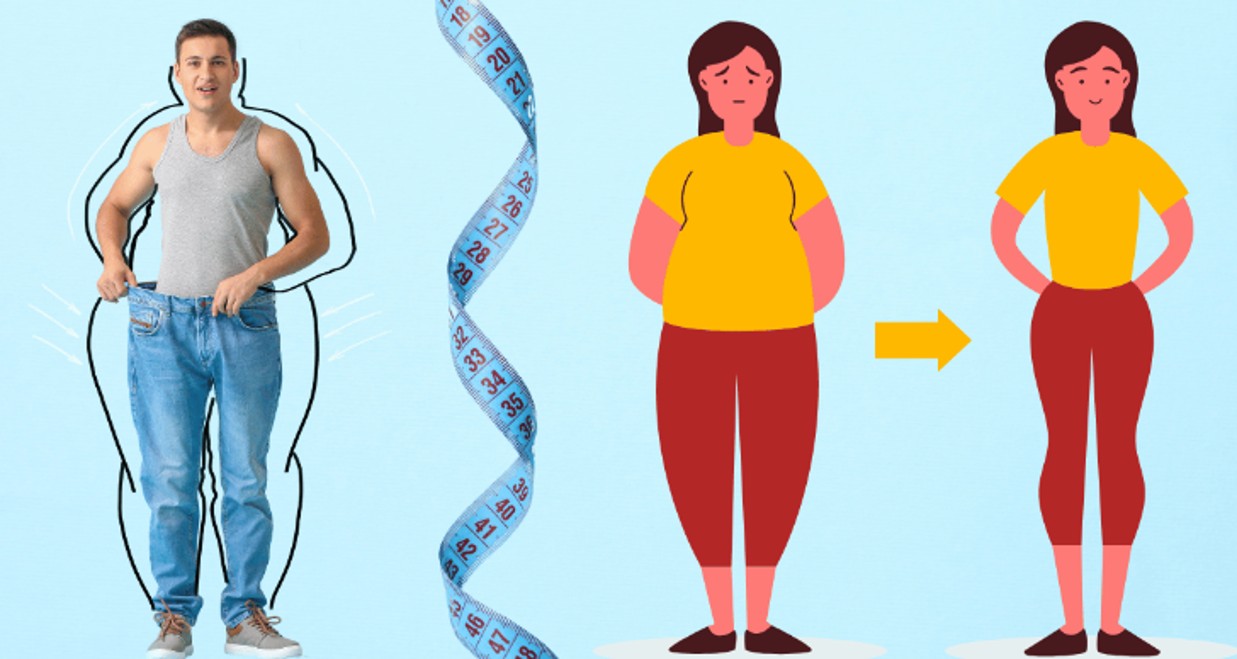HEALTH
How to Lose Weight Fast Without Exercise: Effective Tips and Strategies

Losing weight without exercise may seem challenging, but it is entirely possible with the right strategies. This guide will provide you with effective tips and methods to help you shed pounds quickly without the need for strenuous physical activity.
By focusing on creating a caloric deficit, making smarter food choices, and incorporating healthy habits, you can start losing weight today and see significant changes in your overall health and appearance.
Proven Ways to Lose Weight Without Exercise
One essential aspect of weight loss, especially when not exercising, is ensuring that you are getting a balanced and nutritious diet. When you focus on whole, nutrient-dense foods, you provide your body with the necessary vitamins and minerals it needs to function optimally. This approach not only aids in weight loss but also improves overall health. Incorporating a variety of fruits, vegetables, lean proteins, and whole grains into your meals can help you achieve your weight loss goals without feeling deprived.
“It is crucial to ensure you get all the nutrients from your meals when you are not fasting. Make sure to eat a healthy and balanced diet that meets your macros and nutritional needs.” said Marine Melamed, R.D at Lumen.
Additionally, a balanced diet supports metabolic health and can help you maintain energy levels throughout the day. When you consume nutrient-rich foods, your body can better regulate hunger and satiety, making it easier to avoid overeating and unhealthy snacking. This, combined with other mindful eating practices, can create a sustainable path to weight loss and overall well-being. Remember, the key is to make small, manageable changes that you can maintain in the long term.
Chew thoroughly and slow down
Eating slowly and chewing thoroughly can help you feel full faster and consume fewer calories. When you take your time with meals, your brain has enough time to signal that you’re full, reducing the likelihood of overeating.
Use smaller plates for high-calorie foods
Using smaller plates can help control portion sizes. Smaller plates make portions look larger, which can trick your brain into feeling satisfied with less food, ultimately reducing your calorie intake.
Eat plenty of protein
Including more protein in your diet can boost metabolism and reduce appetite. Protein-rich foods like lean meats, eggs, and legumes can help you feel fuller for longer, aiding in weight loss.
Prepare more meals at home
Cooking at home allows you to control ingredients and portion sizes. This can lead to healthier eating habits and a lower calorie intake compared to dining out or consuming processed foods.
Eat fiber-rich foods
Foods high in fiber, such as vegetables, fruits, and whole grains, can increase satiety and reduce calorie absorption. Fiber helps slow digestion and keeps you feeling full, which can prevent overeating.
Drink water regularly
Drinking water before meals can reduce hunger and help you consume fewer calories. Staying hydrated is also essential for overall health and can boost your metabolism.
Eat without electronic distractions
Eating while watching TV or using electronic devices can lead to mindless eating and overconsumption of calories. Focus on your meal to better recognize hunger and fullness cues.
Sleep well and avoid stress
Adequate sleep and stress management are crucial for weight loss. Lack of sleep and high stress levels can disrupt hormones that regulate hunger and appetite, leading to increased calorie intake.
Eliminate sugary drinks
Sugary drinks are high in empty calories and can contribute to weight gain. Replacing sugary beverages with water or unsweetened drinks can significantly reduce your calorie intake and aid weight loss.
Boost your cooking skills
Improving your cooking skills can lead to healthier meal preparation. Learning to cook nutritious meals can help you make better food choices and control portion sizes, contributing to effective weight loss.
Additional Tips for Effective Weight Loss
Try a probiotic
Probiotics can support weight loss by promoting a healthy gut microbiome. A balanced gut flora can enhance digestion and nutrient absorption, helping you manage your weight more effectively.
Get more vitamin D
Increasing your vitamin D intake can aid weight loss by improving calcium absorption and supporting metabolic functions. Vitamin D-rich foods and supplements can help you maintain a healthy weight.
Serve food in multiple small portions (50 words)
Dividing your meals into smaller portions can help control calorie intake. Eating small portions more frequently can keep your metabolism active and prevent overeating by keeping hunger at bay.
Conclusion
Losing weight without exercise is achievable by creating a caloric deficit and adopting healthier eating habits. Focus on mindful eating, hydration, and nutrient-dense foods.
Incorporating these tips and strategies into your daily routine can lead to effective and sustainable weight loss, improving your overall health and well-being. Remember, consistency is key and making small, manageable changes can have a significant impact over time.










